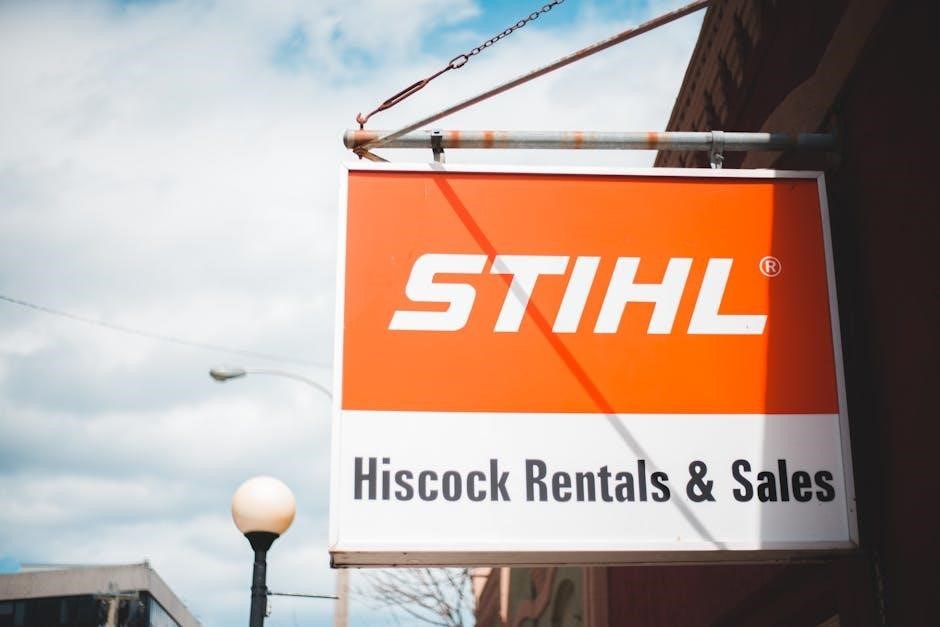
A commercial rental application is a document used by landlords to evaluate potential tenants for commercial properties. It typically includes business details, financial records, rental history, and identification. The process streamlines tenant screening, ensuring compliance with legal standards and protecting both parties. Using a commercial rental application template simplifies the process, saving time and effort. It is a crucial first step in securing a commercial lease agreement, providing landlords with essential information to make informed decisions.

Required Information for the Application
A commercial rental application requires detailed business information, financial records, rental history, and identification. Applicants must provide proof of business legitimacy, financial stability, and previous tenancy details to ensure a thorough evaluation process.
Business Details
Business details are essential for evaluating the credibility and stability of a potential commercial tenant. Applicants must provide the full legal name of their business, its structure (e.g., LLC, corporation, or sole proprietorship), and the Employer Identification Number (EIN). Contact information, including the business address, phone number, and email, is also required. Additionally, landlords often request the names and titles of business owners or key decision-makers. A brief description of the business operations and the intended use of the rental property is necessary to assess compatibility. Some applications may also ask for the business’s formation date and any relevant licenses or certifications. This information helps landlords verify the legitimacy and operational capacity of the business, ensuring it aligns with the property’s intended use and compliance requirements.
Financial Records
Financial records are critical for assessing a commercial tenant’s creditworthiness and ability to meet rental obligations. Applicants are typically required to provide recent income statements, balance sheets, and tax returns to demonstrate financial stability. Bank statements may also be requested to verify cash flow and liquidity. Additionally, landlords often review credit reports or business credit scores, such as the PAYDEX score, to evaluate the company’s payment history and financial health. In some cases, proof of assets or collateral may be necessary to secure the lease. These documents help landlords determine whether the business can consistently pay rent and maintain the property. Accurate and up-to-date financial records are essential for a thorough evaluation, ensuring both parties enter a lease agreement with confidence. Landlords may also request references from financial institutions or suppliers to further validate the business’s financial standing.
Rental History
Rental history is a vital component of a commercial rental application, providing insight into a tenant’s past behavior and reliability. Applicants are typically required to list previous rental properties, including addresses, dates of tenancy, and rent amounts. Landlords may contact former property managers or landlords to verify payment history and assess the tenant’s ability to meet obligations. Details about lease terms, including any renewals or terminations, are also essential. Tenants may need to explain any gaps in rental history or past issues, such as evictions or late payments. Providing accurate and complete rental history helps landlords evaluate the applicant’s suitability as a tenant. Incomplete or misleading information can lead to application rejection. Ensuring transparency in rental history demonstrates trustworthiness and responsibility, which are critical for securing a commercial lease agreement. Accurate documentation is key to a smooth and successful application process.
Identification
Identification is a critical part of the commercial rental application process, ensuring the legitimacy and credibility of the applicant. Applicants are typically required to provide official government-issued ID, such as a passport, driver’s license, or state ID, to verify their identity. For business entities, additional documentation may be needed, such as articles of incorporation, business registration, or an Employer Identification Number (EIN). Landlords may also request personal identification for all authorized signatories on the lease. Providing accurate and valid identification helps establish trust and ensures compliance with legal requirements. In some cases, applicants may need to submit multiple forms of ID, with at least one containing a photo. This step is essential for verifying the applicant’s authority to enter into a lease agreement and for maintaining transparency throughout the rental process. Proper identification is a foundational aspect of a complete and secure commercial rental application.
Screening Potential Tenants
Screening potential tenants involves a thorough review of their application, business legitimacy, and financial stability. This process helps landlords make informed decisions and minimize risks associated with commercial rentals.
Process Overview
The process of screening potential tenants for a commercial rental begins with a detailed review of the rental application. Landlords or property managers typically start by verifying the accuracy of the information provided, such as business details, financial records, and rental history. This step is crucial to assess the applicant’s credibility and ability to meet lease obligations. Next, a credit check is conducted to evaluate the business’s financial stability, often including a review of the business credit score or PAYDEX score. Additionally, landlords may verify the legal existence of the business and its registration with the state. The process also involves evaluating the applicant’s proposed use of the property to ensure it aligns with zoning laws and property regulations. Finally, landlords may conduct interviews or request additional documentation to further assess the tenant’s suitability. This comprehensive approach helps landlords make informed decisions and mitigate potential risks associated with commercial rentals. Using a commercial rental application template can streamline this process, ensuring all necessary information is collected efficiently.
Credit Checks

Credit checks are a critical component of the tenant screening process for commercial rentals. Landlords typically review the business credit profile to assess financial stability and determine the likelihood of timely rent payments. This involves evaluating the business credit score, often referred to as the PAYDEX score, which reflects the company’s payment history and creditworthiness. A higher score generally indicates better financial health. Additionally, landlords may examine the business’s credit history, including any past bankruptcies, liens, or collections, to gauge risk. Personal credit checks on the business owner may also be conducted, especially for smaller businesses or sole proprietorships. These checks help landlords evaluate the applicant’s ability to manage financial obligations and adhere to lease terms. By analyzing credit data, landlords can make informed decisions about approving or denying a commercial rental application. This step is essential for mitigating financial risks and ensuring a successful tenancy. A commercial rental application template often includes sections for consent to credit checks, streamlining the process for both parties.
Business Verification
Business verification is a key step in evaluating potential commercial tenants. Landlords typically verify the business’s legal status by checking its registration with the state and ensuring it is operational. This includes confirming the business name, structure (e.g., LLC, corporation), and Employer Identification Number (EIN). Verification ensures the entity is legitimate and capable of entering into a lease agreement. The process may also involve reviewing the business’s licenses, certifications, and compliance with industry regulations. By verifying the business, landlords can assess its credibility and financial stability, reducing the risk of non-payment or breach of contract. Additionally, landlords may visit the business location or review its website to gain insights into its operations and reputation. This step is crucial for ensuring the tenant’s ability to meet lease obligations and maintain a professional relationship. A commercial rental application template often includes sections for business verification, making the process efficient and straightforward for both parties.
Financial Evaluation
Financial evaluation is a critical step in the commercial rental application process, allowing landlords to assess a business’s financial health and stability. This involves reviewing the applicant’s financial records, such as income statements, balance sheets, and tax returns, to determine their ability to meet lease obligations. Credit checks are commonly performed to evaluate the business’s creditworthiness, with tools like the PAYDEX score providing insights into payment history. Landlords may also request bank statements to verify cash flow and liquidity. Additionally, the business’s debt-to-equity ratio and profitability are analyzed to gauge long-term viability. This process helps landlords identify risks and ensures the tenant can sustain rental payments over the lease term. A thorough financial evaluation minimizes the likelihood of default and ensures a stable landlord-tenant relationship. By using a commercial rental application template, landlords can streamline this process and collect all necessary financial data efficiently.

Legal Considerations and Protections
Legal considerations ensure compliance with local laws and protect both landlords and tenants. Essential clauses in the lease agreement include rent terms, lease duration, and property use restrictions. Tenant rights, such as anti-discrimination protections, must also be upheld. Landlords must adhere to fair housing laws and disclose specific terms in the agreement. Proper documentation and legal oversight are crucial to avoid disputes and ensure a binding contract. This framework safeguards both parties’ interests and maintains a professional relationship throughout the tenancy.
Essential Clauses
Essential clauses in a commercial rental application ensure clarity and protection for both landlords and tenants. These clauses typically include rent terms, lease duration, and permitted property use. Maintenance responsibilities, such as repairs and utilities, are also outlined. Additionally, clauses addressing rent increases, subletting, and termination conditions are standard. Dispute resolution processes, insurance requirements, and compliance with local laws are often included. These clauses provide a framework for resolving potential conflicts and ensure both parties understand their obligations. Properly drafted clauses help prevent misunderstandings and safeguard the rights of all involved. They are critical for maintaining a professional and legally binding relationship throughout the tenancy period.
Compliance
Compliance is a critical aspect of commercial rental applications, ensuring that all legal and regulatory requirements are met. Landlords must adhere to local, state, and federal laws, including fair housing laws and disability access standards. The application process must avoid discriminatory practices and ensure transparency in tenant screening. Additionally, compliance involves verifying the property’s zoning and land-use approvals for commercial activities. Rent increases and lease terms must align with legal guidelines to prevent disputes. Proper compliance safeguards both landlords and tenants by ensuring the agreement is legally binding and enforceable. Regular updates to rental policies and procedures are essential to maintain compliance with evolving regulations. Non-compliance can result in legal penalties, making it vital to stay informed and adapt to changes in rental laws and standards.

Tenant Rights
Tenant rights in commercial rental applications are designed to protect lessees from unfair practices and ensure a transparent leasing process. Tenants have the right to receive clear, detailed information about the property and lease terms. Discrimination based on race, gender, disability, or other protected characteristics is prohibited. Tenants also have the right to a safe and habitable space, with landlords required to maintain the property’s structural integrity. Rent increases must follow legal guidelines, and tenants should be provided with adequate notice. Additionally, tenants have the right to privacy, with landlords needing permission for property access. Understanding tenant rights is essential for both landlords and tenants to foster a fair and respectful rental relationship. Compliance with these rights ensures a balanced agreement, safeguarding the interests of all parties involved in the commercial lease.
Final Agreement
The final agreement in a commercial rental application process is a legally binding contract outlining the terms agreed upon by both the landlord and tenant; It is drafted after successful screening and negotiation, ensuring clarity on lease duration, rent, property use, and responsibilities. The agreement must include detailed clauses such as payment terms, security deposits, and termination conditions. Both parties are required to review and sign the document, often with witnesses or legal representation to ensure compliance with local laws. The final agreement safeguards the rights and obligations of both the landlord and tenant, providing a clear framework for the tenancy; Once executed, it serves as the official record for the commercial lease, protecting all parties involved. Proper execution of the agreement is crucial to avoid disputes and ensure a smooth rental relationship.
 salesforce admin certification dumps 2020 pdf free
salesforce admin certification dumps 2020 pdf free  exercise band workouts pdf
exercise band workouts pdf  12 days of christmas printable pdf
12 days of christmas printable pdf  s92 bus schedule pdf
s92 bus schedule pdf  diet plan for breastfeeding mothers to lose weight pdf
diet plan for breastfeeding mothers to lose weight pdf  u.s. coin book pdf
u.s. coin book pdf  amc past papers with answers pdf
amc past papers with answers pdf  tv guide monroe michigan
tv guide monroe michigan